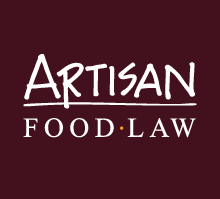Bread and Bakery
Food law and regulatory framework for artisan and small scale bread and bakery production, flour fortification, bread weights, labels and wood-fired ovens.
It could be said that food law all started with bread. The Assize of Bread and Ale 1266 is widely acknowledged to be the earliest example of food law. This early example and the legislation which followed well into the nineteenth century sought to ensure that bread was neither adulterated nor sold underweight.
The fortification of flour in the UK became established in the 1950s. The addition of calcium carbonate became mandatory in 1943 to increase calcium levels in the diet. Throughout the 1940s to the end of food rationing in 1954, the milling of flour up to 80% extraction or higher was required by law to make full use of the nutritional value of the wheat grain.
Acrylamide forms when a reaction occurs between reducing sugars (for example, glucose and fructose) and an amino acid (asparagine, Asn) and takes place naturally in foods as a consequence of cooking at temperatures above 120°C.
The Food Safety Act 1990 predates general food law Regulation (EC) 178/2002 by some 12 years and remains the original source of domestic UK food law.
The Food Standards Agency summarises the main responsibilities of food businesses under the 1990 Act as being to ensure:
1. You do not include anything in food, remove anything from food or treat food in any way which means it would be damaging to the health of people eating it.
2. The food you serve or sell is of the nature, substance or quality which consumers would expect.
3. The food is labelled, advertised and presented in a way that is not false or misleading.
Investigating and managing incidents to ensure food safety is a key part of the work of the Food Standards Agency (FSA). The Incidents and Resilience Unit of the FSA maintains the Incident Management Plan for Non-Routine Incidents. The FSA defines a food incident as:
"Any event where, based on the information available, there are concerns about actual or suspected threats to the safety, quality or integrity of food and/or feed that could require intervention to protect consumers’ interests. Quality should be considered to include food standards, authenticity and composition."
Food business operators are under a duty to cooperate with food authorities and, in particular, every food business operator must notify the appropriate food authority with details of each establishment under its control that carries out any of the stages of production, processing and distribution of food. This must be done in the way prescribed to register each establishment.




